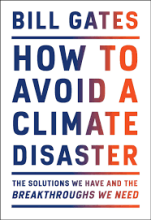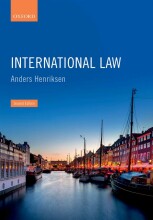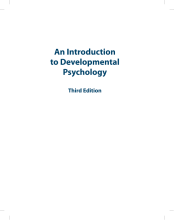Why Zero? - What we do and don't know
11 important questions on Why Zero? - What we do and don't know
What does the Intergovernmental Panel on Climate Change report say about the limitations of scientists within climate change?
- Intergovernmental Panel on Climate Change reports acknowledge that there is uncertainty by scientists about how much and how quickly the temperature will rise and what effect these highter temperatures will have.
- One problem is that computer models are far imperfect: the climate is complex, and we doesn't understand everything. For example = we doesn't understand how clouds affect warming.
What is the difference between water vapor and carbon dioxide and methane when it comes to pollution?
- Water vapor is a greenhouse gas, but unlike carbon dioxide or methane, it doesn't stay in the air for long, but it falls back to the surface as rain or snow.
Scientists are still debating whether storms are happening more often because of the heat, but they appear to be getting more powerful in general. How can you explain this?
- When the average temperature rises, more water evaporates from the earth's surface into the air.
- As water vapor condenses into rain, it releases a massive amount of energy, as anyone who has ever experienced a big thunderstorm knows.
- Higher grades + faster learning
- Never study anything twice
- 100% sure, 100% understanding
Even the most powerful storm lastst only a few days, but its impact can reverberate for years. What consequences can storms have?
- You can think of the loss of life or hurricanes and floods that destroy buildings. It takes money and time to rebuild all of this damage.
- For an example = One study estimated that Hurrricane Maria in 2017 set Puerto Rico's infrastructure back more than two decades.
Stronger storms are creating a feast-or-famine situation. What is meant by this?
- It's raining more in some places, but other places are experiencing more frequent and more severe droughts.
- Hotter air can hold more moisture, and as the air gets warmer, it gets thirstier, drinking up more water from the soil.
- So, by the end of the century, soils in the southwestern U.S will have 10% to 20% less moisture, and the risk of drought there will go up by at least 20%.
- Drought will also threaten the Colorado River, which supplies drinking water for nearly 40 million people and irrigation for more than one-seventh of all American crops.
According to Bill Gates, a hotter climate will lead to more frequent and destructive wildfires. How can you explain this?
- Warm air absorbs moisture from plants and soil, leaving everything more prone to burning.
- For example = California; wildfires now occur there five times more often than in the 1970s, this is because the forests there now contain much more dry wood that's likely to burn.
What does the U.S. Government say about the relation between wildfire and climate change in California?
- Half of the increase of wildfire is due to climate change, according to the U.S. Government and by mid-century America could experience more than twice as much destruction from wildfires as it does today.
The extra heat, what is a result of climate change, will lead to a rise in sea levels. What two explanations does Bill gates give for this?
- For a part, this is because polar ice is melting
- For another part, this is because seawater expands when it gets warmer.
Why will rising sea levels be worse for the poorest people in the world?
- For example = Bangladesh is a country that's making good progress on the path out of poverty and has always been beset by severe weather, like heavy rainfall every year.
- Climate change makes this even harder, because of cyclones, storm surges and river floods: it is now common for 20% to 30% of Bangladesh to be underwater, wiping out crops and homes and killing people throughout the country.
What does the Intergovernmental Panel on Climate Change (IPCC ) say about the effect of extra heat (and the carbon dioxide that's causing it), for plants and animals?
- A rise of 2 degrees Celsius would cut the geographic range of vertebrates by 8%, plants by 16% and insects by 18%.
For the food that we are eating, it's a mixed and grim picture. What can you say about the effect of heat on wheat and corn?
- On the one hand, wheat (and many other plants) grow faster and need less water when there's a large amount of carbon in the air.
- On the other hand, corn is sensitive to heat, while it's the number one crop in the U.S.
The question on the page originate from the summary of the following study material:
- A unique study and practice tool
- Never study anything twice again
- Get the grades you hope for
- 100% sure, 100% understanding
































